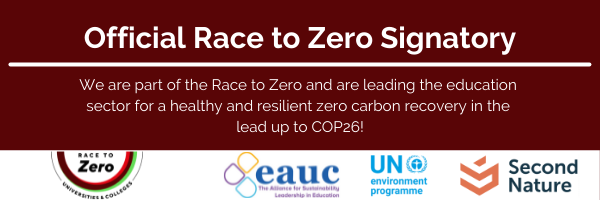
IIASA Race to Zero Commitment
Over the years, IIASA research and the expertise of its researchers have underpinned many important global initiatives, including the Paris Agreement, the UN Sustainable Development Goals, and sustainability pathways that will enable building forward a more sustainable (post-COVID-19) world. IIASA research also forms part of the scientific backbone that underlies the strategies laid out in the new European Green Deal’s proposals to revise EU climate, energy, and transport-related legislation - the so-called 'Fit for 55 package' - which is meant to put the region on track to meet its goal of cutting emissions by 55% by 2030 and turning climate neutral by 2050.
In light of the above, IIASA as an institution commits to pursue sustainable practices in its own day-to-day operations – in other words to have a “practice-what-you-preach” mindset – and thereby play its part in making the world we live in more sustainable.
Specifically, IIASA commits to reach net zero greenhouse gas (GHG) emissions as soon as possible, and by mid-century at the latest, in line with global efforts to limit global warming to 1.5°C above pre-industrial levels. The institute’s commitment of achieving Net Zero emissions by 2050 will include an interim target to achieve 50% of the emission reductions latest by 2030 relative to 2019 and a series of interim annual targets to aid monitoring and implementation of the IIASA Race to Zero Policy. This commitment reflects a maximum effort toward or beyond a fair share of the 50% global reduction in CO2 by 2030.
To achieve this commitment on 6 December 2021 the IIASA Executive team approved the Race to Zero Policy and signed the Race to Zero Commitment Letter, and on 13 January 2022 IIASA officially joined the UN-supported 'Race to Zero' campaign. IIASA will regularly collect and analyse the GHG-related self-emitted data to review and report on the progress.
 © Alliance for Sustainability Leadership in Education
© Alliance for Sustainability Leadership in Education